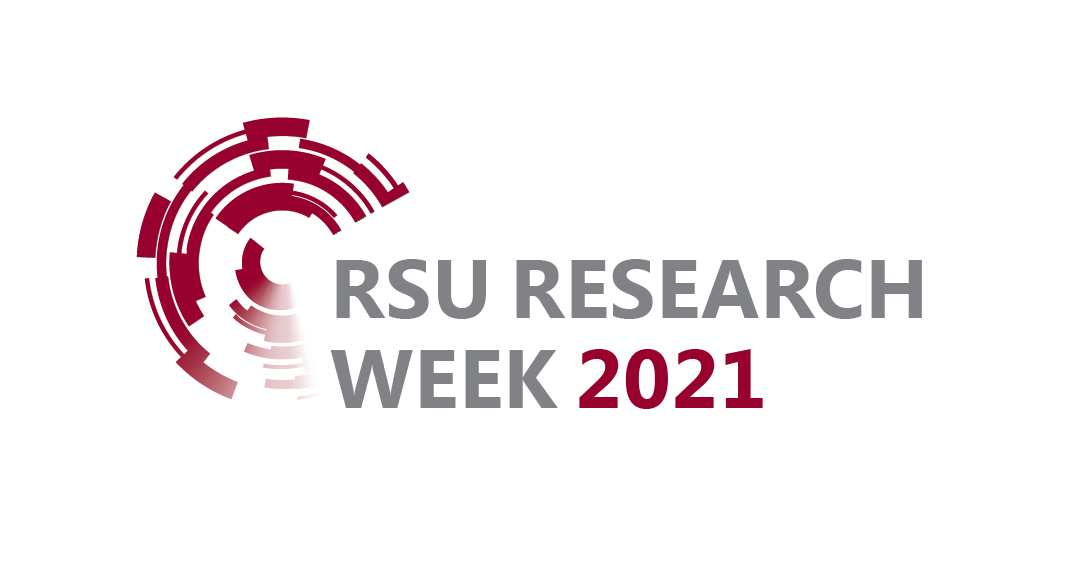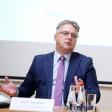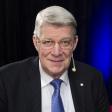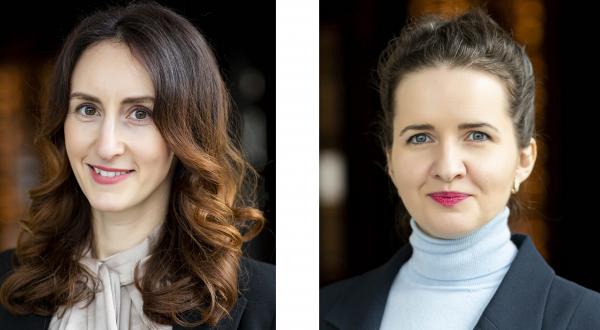PLACES
25 March 2021 Rīga Stradiņš University (Online Event)
The 2nd International Interdisciplinary Conference PLACES
PLACES = Politics, Psychology, Law, Anthropology, Communication, Economics and Business, Sociology
Transforming the social fabric: visions and futures at times of SARS-CoV-2 and other global challenges
30 years after the “end of history”, history is still taking place, so the need to retrieve the future persists, too. PLACES 2021 will explore a variety of topical issues – from global anxieties shaped by experience of the pandemic in almost all spheres of public life and contemporary uncertainties stirred by rising inequality, to a lack of vision regarding the future of social fabric and populism and fragility of democracy globally and in Central and Eastern Europe, in particular.
Representatives of various academic fields will look at the challenges to a global future and search for answers to vital questions:
- How are social sciences capable of grasping unexpected pandemic phenomena?
- How is the current global crisis reshaping social welfare, political institutions and various communication processes?
- How is democracy functioning in times of a “plague” and climate change? Is it diminishing, or are we witnessing a new form of limited democracy? Who and how are democratic institutions transforming?
- What new forms of participation, networks of meaning and collective identities have come into existence? In what ways do societies manage the balance between freedom and security?
These and many other questions will be addressed and debated in several interdisciplinary academic sessions. Using different research methodologies and presenting new studies, PLACES 2021 will check on the potential of social sciences to shape future challenges and offer academically-based solutions in times of growing collective irrationality, boosted by populism.
- Plenary, 25 March
Room: Senate Moderators: Prof. Andris Sprūds, Lect. PhD Karina Palkova 9:00–9:10 Transforming the social fabric: visions and futures at times of SARS-CoV-2 and other global challenges Prof. Deniss Hanovs 9:10–9:30 Challenged Societies during COVID-19 and beyond: from Democraticless Democracies to Cancel Culture Dr Valdis Zatlers 9:30–9:35 Q & A 9:35–9:55 Human rights during Pandemic time Juris Jansons 9:55–10:00 Q & A 10:00–10:20 Making sense of media literacy and related research: Outlining the geocultural specifics based on Baltic-Nordic collaboration Maarit Jaakkola 10:20–10:25 Q & A - Keynote speakers
International Relations and Political Science
- Insight into the Section
Domestic and international politics during times of permanent instability
This section welcomes abstracts conceptualising and devising novel methodological, theoretical and empirical issues regarding international relations and political science.
- Agenda
Room: Kappa Session I (Each presentation up to 10 minutes, followed by a 5 minute Q&A session) Moderator: Prof. Andrey Makarychev 15:00–15:15 #172 Ideology Matters: Framing Effects and Support for Humanitarian Intervention in Dynamic Message Environments Juris Pupčenoks, Qihao Ji 15:15–15:30 #245 Framing the Baltic States in the US Security Policy Discourse during Donald Jr. Trump Administration Mārtiņš Vargulis 15:30–15:45 #87 Latvia’s defence and security institutional thinking in the framework of European Union Common Security and Defence Policy Valērijs Bodnieks 15:45–16:00 #346 Bureaucratic policy and defense cooperation among the Baltic States Olevs Nikers 16:00–16:15 #337 Approaches and factors of small power candidacy for United Nations security council: Baltic example Eduards Gailišs 16:15–16:30 #280 Communicative Narratives as Soft Power: case study of the "17+1 cooperation platform" using CODA method Mārtiņš Daugulis 16:30–16:45 Discussion Session II (Each presentation up to 10 minutes, followed by a 5 minute Q&A session) Moderator: Assoc. Prof. Alexander Dukalskis 17:00–17:15 #963 Securing public trust and democratic accountability in local governance: perceptions of regional reforms in the case of Latvia Armands Astukevičs 17:15–17:30 #510 Educational Diplomacy: Universities in the Context of Latvia’s International Aspirations Zane Šime 17:30–17:45 #697 Higher Education Policy in Latvia (2010-2020): Analysis of Party Platforms Elīna Graudiņa 17:45–18:00 #911 Being a digital citizen: attitudes towards control of activities Ieva Strode 18:00–18:15 #301 The End of Conditionality? An Analysis of Conditionality and Governance Safeguards in IMF Lending During the COVID-19 Pandemic Māra Rūse 18:15–18:30 #1024 Cooperation of the Baltic States in the implementation of the Rail Baltica project Kristiāns Andžāns 18:30–18:45 #879 Recognizing the Inevitable: Latvian Media Narratives About Climate Change Vineta Kleinberga, Aleksandra Palkova 18:45–19:00 Discussion - Committees
International Scientific Committee
- Prof. Dr. sc. pol. Andris Sprūds, Dean, Faculty of European Studies, RSU, Latvia
- Asst. Prof. Māris Andžāns, Head of Study Programme, Political Science; Head of Study Programme, International Governance and Diplomacy, Department of Political Science, RSU, Latvia
- Asst. Prof. Dr. sc. pol. Kārlis Bukovskis, Department of Political Science, RSU, Latvia
- Andrey Makarychev, Visiting Professor, Johan Skytte Institute of Political Studies, University of Tartu, Estonia
- Michael Kaeding, Professor for European Integration and European Union Politics at the Department of Political Science of the University of Duisburg-Essen, Germany
- Assoc. Prof. Alexander Dukalskis, Ph.D., School of Politics & International Relations, University College Dublin, Ireland
- Assoc. Prof. Gatis Krūmiņš, Rector and Senior Researcher, Vidzeme University of Applied Sciences, Latvia
Organising Committee
- Prof. Dr. sc. pol. Andris Sprūds, Dean, Faculty of European Studies, RSU
- Asst. Prof. Māris Andžāns, Head of Study Programme, Political Science; Head of Study Programme, International Governance and Diplomacy, Department of Political Science, RSU
Psychology
- Insight into the Section
Psychological help: a cross-disciplinary perspective
The current challenges that our country, our neighbourhoods, and we ourselves are facing are in many ways highlighting problems that affect our socio-emotional and psychological health. Answers and solutions can only be found following an interdisciplinary and integrative approach and by cultivating interactions between different areas of knowledge of the human being and society: by strengthening cooperation between health sciences and technology, on the one hand, and social sciences, humanities, and art, on the other. An interdisciplinary approach can yield fruitful outcomes in many respects. Since socio-emotional and psychological issues penetrate all areas of social life, including health care, communication, business, public administration and non-governmental initiatives - on an individual, local, and a national level - the circumstances are ripe for promoting self-help, solidarity, trust, cooperation, and participation.
- Agenda
Room: Kappa Session I Moderators: Assoc. Prof. Sandra Mihailova, Asst. Prof. Ingūna Griškeviča 10:45–11:00 #1145 The identity of Psychology: Research project Sílvia Marina Amado Cordeiro. Miguel Bernardo Ricou da Costa Macedo, Portugal 11:00–11:15 #944 Intelligence Structure Test adaptation in Latvian sample: descriptive statistics and demographic correlates Inese Jokste, Jeļena Ļubenko, Ingrīda Trups-Kalne, Jeļena Koļesņikova, Sintija Lielšvāgere-Endele 11:15–11:30 #498 Relationship between personality traits and attitudes towards aging in older adults Zane Ulmane 11:30–11:45 #139 Healing at a distance: phenomenological perspective on patient experience of teleconsultation Māra Grīnfelde 11:45–12:00 #1066 Relationship between Employees’ Perceived Attribution of Corporate Social Responsibility and Turnover Intention Loreta Bukšnytė-Marmienė, Dovilė Valytė-Žeimienė 12:00–12:15 #199 Assessment Tool for the Requirements of Disabled Students in Higher Education Ingūna Griškeviča, Dina Betherer, Dace Stieģele 12:15–12:30 #508 The sense of belonging of public and private sector employees, during the COVID-19 crisis Sanita Šuriņa, Kristīne Mārtinsone 12:30-12:45 Discussion - Committees
International Scientific Committee
- Prof. Dr. Psych. Kristīne Mārtinsone, Head, Department of Health Psychology and Paedogogy, Faculty of Public Health and Social Welfare, RSU, Latvia
- Prof. Dr. Psych. Anita Pipere, Department of Health Psychology and Paedogogy, Faculty of Public Health and Social Welfare, RSU, Latvia
- Asst.Prof. Dr. Psych. Jeļena Koļesņikova, Director, Health Psychology Programme, Department of Health Psychology and Paedogogy, Faculty of Public Health and Social Welfare, RSU, Latvia
- Asst. Prof. Dr. Med. Toms Pulmanis, Vice-Dean, Faculty of Public Health and Social Welfare, Department of Public Health and Epidemiology, RSU, Latvia
- Asst. Prof. Dr.Psych. Jeļena Ļubenko, Department of Health Psychology and Paedogogy, Faculty of Public Health and Social Welfare, RSU, Latvia
- Asst. Prof. Dr. Psych. Viktorija Perepjolkina, Department of Health Psychology and Paedogogy, Faculty of Public Health and Social Welfare, RSU, Latvia
- Vita Savicka, Lect. Mg.pol. Mg.communication, Director, Health Communication Programme, Faculty of Communication, RSU, Latvia
- Assoc. Prof. PhD Vilmantė Aleksienė, Head, Arts Therapy Master Program of Vilnius University Medical Faculty and Lithuanian Academy of Music and Theatre, Lithuania
- Agita Lūse, Docent, Dept. of Communication Studies, RSU
Organising Committee
- Prof. Dr. Psych. Sandra Mihailova, Director, Psychology Study Direction and Programme, Faculty of Communication, RSU, Latvia
- Kristīne Šneidere, Asst. Mg.Psych., doctoral student, Department of Health Psychology and Paedogogy, Faculty of Public Health and Social Welfare, Military Medicine Research and Study Centre, RSU
- Sanita Šuriņa, Assist. Mg. Sc. Sal., doctoral student, Department of Health Psychology and Paedogogy, Faculty of Public Health and Social Welfare, RSU
Law
- Insight into the Section
Integration of Academic Knowledge and Legal Practice
The topics this section will cover are: Contemporary Legal Problems and Medical and Sports Law. The conference will bring together prominent lawyers from both academia and the professional sector. Current challenges to national, international and European law will be discussed. Special attention will also be paid to impact of the COVID-19 to the legal system.
- Agenda: Contemporary Legal Problems
- Sessions I–III
Room: Omicron Session I Moderator: Dr. iur. Jānis Grasis 10:45–11:00 #727 An effective Search and Rescue at Sea: existing problems and possible solutions Jānis Grasis, George Chakhvadze 11:00–11:15 #1139 Illegal mining of mineral resourses in Ukraine: state, determinants, prevention Ihor Zdorovylo 11:15–11:30 #1054 Pandemic and self-isolation: social and legal issues Alina Kaļiņina 11:30–11:45 #752 Ukrainian citizens' attitude to comply with the requirements of anti-epidemic legislation during the COVID-19 pandemic Vladyslava Batyrgareieva 11:45–12:00 #720 Digital sovereignty. Fiction or reality? Uldis Ķinis 12:00–12:15 #706 The impact of the information space on public heath (on the example of the COVID-19 pandemic in Ukraine) Sabriie Shramko 12:15-12:30 Discussion Session II Moderator: Dr. iur. Jānis Grasis 12:45–13:00 #1115 The legal status of a chairman of the municipal council Juris Radzevičs 13:00–13:15 #1106 Processing of personal data of an employee, collected by employer using digital technologies Agnese Reine 13:15–13:30 #1100 Anonymisation of personal data: An opportunity for entrepreneurship and innovations Žaklīna Vagoliņa 13:30–13:45 #926 Compliance of euthanasia with the Constitution of the Republic of Latvia Una Pujāte 13:45–14:00 #822 The importance of the CISG Advisory Council and its opinions in uniform application of the CISG Sindija Damberga 14:00–14:15 #536 Detection of the fact of psychological terror in a natural place ("mobbing") in the event of termination of the employment relationship Dace Tarasova 14:15–14:30 #228 The legal aspects of a dismissal of the municipal council Juris Radzevics 14:30-14:45 Discussion Session III Moderator: Dr. iur. Sandra Kaija 15:00–15:15 #932 The role and possibilities of accounting forensic examination in resolving economic disputes Ināra Repša, Jānis Ievītis, Jūlija Liodorova 15:15–15:30 #855 A potentia and actum: application of pretrial detention in criminal proceedings Jānis Ievītis 15:30–15:45 #580 Electronic evidence in criminal proceedings Ilona Kurca 15:45–16:00 #525 Possibilities for the court to assess evidence obtained in operational activities Gerda Klāviņa, Ansis Zanders 16:00–16:15 Discussion - Parallel sessions I–III
Room: Rho Session I Moderator: Dr. iur. Vitolds Zahars 10:45–11:00 #305 Application of the urgent procedures in the context of the provision of the right to complete criminal proceedings in a reasonable term Dainis Vēbers 11:00-11:15 #163 Rights to use own money Tatjana Jukna 11:15–11:30 #268 Problems of the legal framework for controlling the spread of Covid-19 infection Andrejs Vilks 11:30–11:45 #227 Meaning and the possible classifications of the payment instruments under PSD2 Anete Bože 11:45–12:00 #214 The Beginnings of Competition Law in Roman Law Institutions Allars Apsītis, Dace Tarasova, Jolanta Dinsberga 12:00–12:15 Discussion Session II Moderator: Dr. iur. Vitolds Zahars 12:45–13:00 #152 Opportunities of the modernization of the procedure of the securing a claim Andrejs Gvozdevičs 13:00–13:15 #121 Fiduciary duties of Member of the Board Andrejs Ņikiforovs 13:15-13:30 #307 The legal framework and the application of the temporary trusteeship in urgent cases Inga Kudeikina, Marina Loseviča 13:30-13:45 #63 Insolvency proceedings policy - COVID-19 affected? Valdis Savickis 13:45–14:00 #246 Problems of trade mark and consumer protection regulation Dita Mežavilka, Jolanta Dinsberga 14:00–14:15 Discussion Session III Moderator: Dr. iur. Jānis Grasis 15:00–15:15 #437 Analytical overview of compensation understanding Dana Segale 15:15–15:30 #457 General education student’s administrative responsibility for hooliganism on internet in the distance learning process Rihards Erdmanis 15:30–15:45 #463 Children freedoms during the Covid-19 pandemic in Latvia Ilze Ziemane 15:45–16:00 #501 Historical scope of the registration, updating and deletion of the servitude of right of way Jolanta Dinsberga 16:00–16:15 #316 Legal scope of the notions “Servitude of right of way” and “Servitude road” Jolanta Dinsberga 16:15–16:30 #1149 The challenge of the lawyer's profession in an era of prevention of money laundering, terrorism and proliferation Sandra Joksta 16:30–16:45 Discussion
- Agenda: Medical & Sports
Room: Senate Session I Moderator: Dr. iur. Karina Palkova 10:45–11:00 #192 Legal and Ethical Aspects of the Application of Prediction Algorithms in Healthcare Līva Rudzīte, Estonia 11:00–11:15 #872 Patient safety incident reporting-learning system availability for patient reporting Andreta Slavinska, Reinis Upenieks, Karina Palkova 11:15–11:30 #1078 Artificial intelligence and machine learning technologies as innovative medical devices Artūrs Žukovs 11:30–11:45 Discussion: Digital healthcare technologies (AI/robotics) vs patients and doctors ethical and legal safety 11:45–12:00 #436 Patient's right to cross-border healthcare when effective hospital treatment is available in the patient’s Member State but the method of treatment used is against the patient’s religious beliefs Laura Šāberte 12:00–12:15 #235 Quality of healthcare during forensic mental health examination: clinical case report of a submitted complaint Jānis Bušs, Anita Slokenberga, Ņikita Bezborodovs 12:15–12:30 Discussion: Challenges in protection of patients' rights: national and international dimension Session II Moderator: Dr. iur. Karina Palkova, Dr. iur. Karina Zalcmane 12:45–13:00 #60 Current legal issues in Medical Law practice: problems and challenges Karina Palkova 13:00–13:15 #258 The educational program “Professional Competence of Complementary and Alternative Medicine (CAM) Specialist”: assessment of legal capacity Ligita Landzmane 13:15–13:30 Discussion: Medical education. Challenges and development perspectives from the legal point of view 13:30–13:45 #860 Flaws of Anti-doping regulation in the Republic of Latvia Edgars Gūte 13:45–14:00 #715 Criminalisation of doping in sports Karina Zalcmane 14:00–14:15 #832 Substances of abuse – the changes and challenges associated with it in anti-doping system Roberts Lauris 14:15–14:30 Discussion: Benefits and Limitations of Sports Industry Self-Regulation Session III Moderator: Dr. iur. Karina Palkova, Dr. iur. Karina Zalcmane 15:00–15:15 #707 Sports Law and Access to Justice in Anti-Doping Cases Inga Kačevska 15:15–15:30 #726 Appealing Against Decisions in Anti-Doping Case Agnese Hartpenga 15:30–15:45 Discussions: The Court of Arbitration for Sport: Where Do Human Rights Stand? 15:45–16:00 #849 Sport and Politics: sports role in formulating and consolidation of power relations Marina Kameņecka-Usova 16:00–16:15 #812 Trademarks in sports Stella Kaprāne 16:15–16:30 #1027 Legal liability of sports event organiser in Latvia Āris Kakstāns 16:30–16:45 Discussion: Legal and Social Responsibility issues at Mega Sporting Events - Committees
International Scientific Committee
- Prof. Dr. iur. Andrejs Vilks, Dean, Faculty of Law, RSU, Latvia
- Prof. Dr. iur. Sandra Kaija, Head of Study Programme, Law, Faculty of Law, RSU, Latvia
- Dr. iur. Jānis Grasis, Vice-Dean, Faculty of Law, RSU, Latvia
- Dr. iur. Karina Palkova, Faculty of Law, RSU, Latvia
- Prof. Tanel Kerikmäe, Tallinn University of Technology, School of Business and Governance, Estonia
- Assoc. prof. Dovile Gailiūte-Janušone, Vice-Dean for International Relations and Studies, Mykolas Romeris University, Lithuania
- Walter Kego, Senior Research Fellow, Institute for Security and Development Policy, Sweden
- Prof. Natalya Gutorova, Poltava Law Institute of Yaroslav Mudriy National Law University, Ukraine
- Prof. Jacek Zieliński, Siedlce University of Natural Science and Humanities, Poland
- Prof. Vitolds Zahars, Daugavpils University, Latvia
Organising Committee
- Dr. iur. Jānis Grasis, Vice-Dean, Faculty of Law, RSU
- Dr. iur. Karina Palkova, Faculty of Law, RSU
Social Anthropology
- Insight into the Section
Flying Ideas, Flying Circuses and Flying Cars: Anthropological Approaches to Techniques and Technologies in the Current World
Many surprising things are flying around today (including the novel COVID-19 virus) - some other things that used to fly don't any more (like airplanes), while things and ideas that we expected to fly soon never really took off the ground (for instance flying cars, Graeber 2012). In a world resembling Monty Python's Flying Circus, we invite participants to consider various aspects, techniques (ways of doing) and technologies (application of knowledge for practical purposes) that might afford us a glimpse of the world to come: from the human body to societies and states, everything can be considered both a technology and a technique.
For instance, "corona times" urge us to pay attention to the know-how that is supposed to save lives and protect against the invisible, flying danger, but often become threats of surveillance and control. The various techniques of either running the state apparatus or avoiding and resisting it (e.g., Scott 1998) came into stark relief during various contemporary protest movements (e.g., Black Lives Matter), which often aim both to resist a certain face of the state while demanding another one (Navaro-Yashin 2002). Even the same technology, like face coverings, can become a technique of protest, as well as a symbol of obedience to an authority.
There are, however, other related flying fields to explore:
- reproductive and identity politics (e.g., DNA testing, genealogies and genograms);
- food (e.g., roof gardening, school lunches or wine tasting);
- combating emergencies (e.g., climate change, health hazards);
- finance (e.g., money and monies);
- bureaucracy (e.g., papers, laws and auditing);
- design of social encounters (e.g., surveillance or movement of people);
- research and knowledge production (e.g., peer-review);
- etc.
With this in mind, we welcome contributions that explore anthropologically and ethnographically often contradictory aims and unintended effects of how technologies are applied and linked to techniques in larger social wholes.
- Agenda
Room: Theta Session I Moderator: Asoc. prof. Klāvs Sedlenieks 10:45–11:00 #669 Cooperatives as interfaces and boundary objects in supply chain infrastructures – Moroccan argan oil Bertram Turner 11:00–11:15 #941 Becoming In-visible: Small Family Farms in Rural Latvia in the Framework of the Nation and EU Agriculture Policy Kristīne Rolle, André Thiemann 11:15–11:30 Discussion: Legal Infrastructures of Agriculture and rural relations 11:30–11:45 #883 Making infrastructural work visible in Latvian research institutions Ieva Puzo 11:45–12:00 #753 What the Flying Spaghetti Monster Can Teach Us About Religion in the 21st Century Michael Strmiska 12:00–12:15 Discussion: Databased techniques and technologies of knowledge and religion Session II Moderator: Leading Researcher André Thiemann 12:45–13:00 #853 State as a technology of kinship Klāvs Sedlenieks 13:00–13:15 #269 State and kinship: exploring assisted reproductive technologies in Latvia Diāna Kiščenko 13:15–13:30 Discussion: Techniques and technologies of making the state through kinship and vice versa - Committees
International Scientific Committee
- Ieva Puzo, PhD, Director of the MSc Program in Social Anthropology, Senior Researcher, Dept. of Communication Studies, Latvia
- André Thiemann, PhD, Leading Researcher, Dept. of Communication Studies, RSU, Latvia
- Asst. Prof. Michael Strmiska, PhD, Dept. of Global Studies, Orange County Community College (SUNY-Orange), United States
- Klāvs Sedlenieks, PhD, Docent, Dept. of Communication Studies, RSU, Latvia
- Agita Lūse, Docent, Dept. of Communication Studies, RSU, Latvia
- Diāna Kiščenko, Researcher and Tutor, Dept. of Communication Studies, Latvia
Organising Committee
- Klāvs Sedlenieks, PhD, Docent, Dept. of Communication Studies, RSU
- Agita Lūse, PhD, Docent, Dept. of Communication Studies, RSU
- André Thiemann, PhD, Leading Researcher, Dept. of Communication Studies, RSU
Communication Studies
- Insight into the Section
"Fake it till… you make it!"
Mediated communication and its prospect
Sharing is not always caring: disinformation, audiences and trust- Agenda
- Sessions I & II
Room: Upsilon Session I: Media literacy Moderator: Prof. Anda Rožukalne 10:45–11:00 #359 Does media literacy predict civic participation? It's complicated Jānis Buholcs, Vineta Silkāne, Agnese Dāvidsone 11:00–11:15 #418 Media literacy and news literacy: what is the connection? Agnese Dāvidsone, Vineta Silkāne, Jānis Buholcs 11:15–11:30 #602 National Network to Combat Disinformation as a tool of media literacy: contributions to health and democracy Christiane Versuti, Maximiliano Martin Vicente, Brazil 11:30–11:45 #456 Education Goes Digital: (A Prospect of) Communities of Life and Knowledge Yevgeny Brazul-Bruszkowski, Russian Federation 11:45–12:00 #873 A Latvian Dictionary of Media and Communications Terms: Pain of Giving Birth Ainārs Dimants 12:00–12:15 Discussion Session II: COVID-19 Driven Topics in the Communication Research Moderator: Dr Ainārs Dimants 13:00–13:15 #487 Communication during the Covid-19 pandemic Sergei Kruk, Diāna Kalniņa 13:15–13:30 #696 Is COVID-19 an ‘ordinary flu’ that benefits politicians? Perception of pandemic disinformation in Latvia Anda Rožukalne, Alise Tīfentāle, Sandra Murinska 13:30–13:45 #694 From fatigue to news avoidance: analysis of the society attitude towards news on Covid-19 in Latvia Anda Rožukalne, Sandra Murinska, Ieva Strode 13:45–14:00 #970 We Have Been Left Alone – How the Journalistic Profession Was Affected by the COVID-19 Epidemic in Romania Ioana Avadani, Romania 14:00–14:15 #831 Health behaviour model as a tool for strategic communication planning to promote COVID-19-related preventive health behaviour Vita Savicka, Gunta Freimane, Kristīne Vigule 14:15–14:30 Discussion: Covid-19 and the media - Sessions III & IV
Room: Phi Session III: Facing Covid: Media, society and art Moderator: Prof. Deniss Hanovs 10:45–11:00 #1069 Balancing between the freedom of speech and the need to regulate in the murky world of fakes Julija Kalpokienė, Lithuania 11:00–11:15 #56 The integration of COVID-19 topics to Kremlin-backed propaganda (Lithuanian case) Viktor Denisenko, Lithuania 11:15–11:30 #664 Political Communication Mobbing: Facebook Case Study Of 13th Saeima Election Campaign Barbara Roskoša, Ilga Kreituse, Mārtiņš Daugulis 11:30–11:45 #1143 “Airbags” of residents of Latvia Diāna Kalniņa 11:45–12:00 #53 Is there any-body out there? Mediatisation of life under COVID-19 and Virtual Influencers Ignas Kalpokas, Lithuania 12:00-12:15 #739 Do we all live in the same democracy? Understanding the perspective of Latvian youth, emigrants and ethnic minorities Liene Ločmele, Baiba Šķērīte, Marita Mūze 12:15–12:30 Discussion: Facing COVID-19: Media, society and politics Session IV: Communication, culture and art Moderator: Dr Ilva Skulte 13:00–13:15 #291 Power of opulence: Baroque culture as communication structure Deniss Hanovs 13:15–13:30 #756 The activities of the Soviet Latvian amateur film association (1962–1972) Rosario Napolitano 13:30–13:45 #296 Graphic Design in Social Media: Kafa Magazine, Tuhaf Magazine, Kafkaokur Magazine Instagram Pages Bahar Soğukkuyu, Turkey 13:45–14:00 #603 The Cultural and historical heritage as an element in formation of the city identity. Case of Hanzas Perons Lolita Ozoliņa, Žanete Eglīte 14:15–14:30 Discussion: Communication, Culture and Art
- Committees
International Scientific Committee
- Kristina Juraitė, Professor, Department of Public Communication, Vitautas Magnas University, Lithuania
- Asst. Prof. Ragne Kõuts, Sociology of Journalism, Institute of Social Studies, University of Tartu, Estonia
- Asst. Prof. Michał Kuś, Department of Communication and Journalism, Institute of Political Science, University of Wroclaw, Poland
- Prof. Anda Rožukalne, Dept. of Communication Studies, RSU, Latvia
- Prof. Sergejs Kruks, Dept. of Communication Studies, RSU, Latvia
- Asst. Prof. Ilva Skulte, Dept. of Communication Studies, RSU, Latvia
- Alnis Stakle, Docent, Dept. of Communication Studies, RSU, Latvia
Organising Committee
- Prof. Deniss Hanovs, Dept. of Communication Studies, RSU
- Agita Lūse, Docent, Dept. of Communication Studies, RSU
Economics and Business
- Insight into the Section
World Economics and Business: Necessities and Innovations in Dynamic Pandemic Adjustments and Beyond
- Agenda
Room: Psi Session I Moderator: Prof. Dr. oec. Tatjana Muravska, Dr. sc. admin. Romāns Putāns 10:45–11:00 #281 Filling the knowledge gap caused by occupational mobility on IT: gender-specific strategies Oksana Žabko 11:00–11:15 #310 EU’s assessment of business environment in Central Asia Līga Andersone 11:15–11:30 #564 Legal challenges of teleworking in Latvia Marta Urbāne, Inna Dovladbekova, Anželika Berķe-Berga 11:30–11:45 #761 Impact of COVID-19 Pandemic on Enterprise Health in Latvia Anželika Berķe-Berga, Inna Dovladbekova, Marta Urbāne 11:45–12:00 #774 Sustainable brand as consumer behaviour influencing factor in Latvia Kristīne Blumfelde-Rutka 12:00–12:15 #786 Development of a marketing strategy to assess the importance of sustainability for consumers in the digital age in the French market Kristīne Blumfelde-Rutka, Elīna Sedleniece 12:15–12:30 #814 The effect of the Latvian Business Environment on Society’s Motivation to Engage in Entrepreneurship: A Comparative Context with Estonia Niks Ķuzulis, Inna Dovladbekova Session II Moderators: Prof. Dr.oec. Inna Dovladbekova, Dr.oec. Anželika Berķe-Berga 13:00–13:15 #821 Guidelines for Research, Technology Development, and Innovation for 2021–2027: towards excellence paradigm for Latvia Uldis Berķis, Jānis Paiders, Dmitrijs Stepanovs 13:15–13:30 #947 A State of Art Review: Negotiation management from the corporate perspective. Negotiation models Līga Briķena 13:30–13:45 #1147 Economic and Legal Aspects of Higher Education Quality and Accordance Assurance: Comparative analysis of Latvia within European Higher Education Area Romāns Putāns, Karina Palkova 13:45-14:00 #1146 Disease economics - economic aspects of anti-bacterial and anti-microbial resistance: comaprative analysis of Europe and other world rgions Romāns Putāns, Lauma Springe - Committees
International Scientific Committee
- Prof. Dr. oec. Inna Dovladbekova, RSU, Latvia
- Prof. Dr. oec. Tatjana Muravska, RSU, Latvia
- Prof. Dr. iur. Christiane Trüe, Bremen City University, Germany
- Prof. Dr. oec. Biruta Sloka, University of Latvia, Latvia
- Prof. Antje Leukens, University of Applied Sciences and Arts Northwestern Switzerland, Switzerland
- Kutaisi University, Georgia
Organising Committee
- Assist. prof. Romāns Putāns, Dr. sc. admin., Department of International Business and Economics, RSU
- Prof., Dr. oec. Inna Dovladbekova, RSU
- Lect. Kristīne Blumfelde-Rutka, M.Soc.sc., RSU
- Assist. prof. Marta Urbāne, Dr.iur. , RSU
- Lect. Ieva Kalve, Dr.oec., RSU
- Lect. Kristaps Zaļais, M.Soc.sc., RSY






